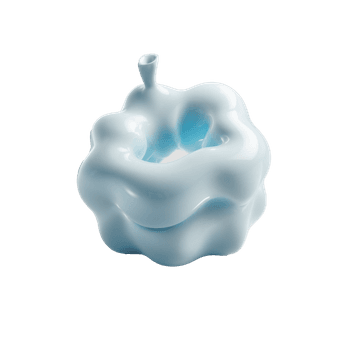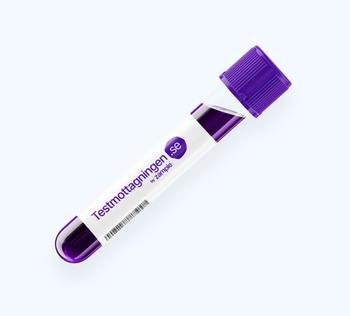What is cortisol?
Cortisol is produced by the adrenal glands and is the most important hormone of a total of three that are part of the group of glucocorticoids. Cortisol's function is to regulate the metabolism of fat, proteins and sugar in the body. Cortisol also inhibits inflammation and allergies.
As a response to stress, the "stress hormone" cortisol is produced and released by your adrenal glands. In case of stress, the body's production of cortisol is affected, which is then secreted in a larger amount. But the ability of the adrenal glands to produce cortisol can also be affected in the opposite direction. In case of prolonged stress, trauma or e.g. in case of underfunctioning of the thyroid gland, rheumatic diseases, etc., as well as nutritional deficiencies, there may instead be a reduction in cortisol production, and the ability to adapt the secretion to varying needs may also be affected.
The level of cortisol in the body varies at different times of the day, even days of the week can be important depending on one's life situation. Therefore, it is important to analyze the result of a cortisol test together with the time of day it is taken.
What can an elevated value of cortisol be due to
An elevated value of cortisol in the blood can be due to various factors, including physiological and pathological conditions. Here are some examples:
Stress: The body releases cortisol as part of the body's stress response. If you experience high stress for a long time, it can lead to an increased production of cortisol and thus elevated cortisol levels in the blood.
Cushing's syndrome: This is a disease caused by an overproduction of cortisol from the adrenal glands or pituitary gland. Symptoms can include weight gain, abdominal obesity, high blood pressure, osteoporosis and muscle weakness.
Adrenocortical hyperplasia: This is a disease where the adrenal glands become larger and produce more cortisol than normal.
Hyperthyroidism: An overactive thyroid gland can cause elevated cortisol levels.
Use of cortisol-like drugs: Some drugs that contain cortisol-like substances can cause elevated cortisol levels in the blood.
Alcoholism: Alcohol can increase cortisol production and lead to elevated cortisol levels in the blood.
It is important to note that cortisol levels can vary throughout the day.
Symptoms of high cortisol
- weight gain
- anxiety
- depression
- sleep disorders
- affected mood
- stretch marks on the skin
- increased blood pressure
- increased blood pressure
High cortisol levels can also cause other symptoms, depending on the cause of the high cortisol level. For example, people with Cushing's syndrome may experience characteristic symptoms such as a rounded face shape, a "buffalo hump" on the back and stretch marks on the skin.
It is important to note that the symptoms of high cortisol levels can vary depending on how high the levels are, how long they have been high and the reason for the high value.
What can a low value of cortisol mean?
A low value of cortisol in the body can be due to various factors and can indicate a number of different diseases and conditions. Some of the most common causes of low cortisol levels include:
Adrenal insufficiency (Addison's disease): This is an autoimmune disease in which the body attacks the adrenal cortex and disrupts the production of cortisol and other hormones. Symptoms may include fatigue, muscle weakness, weight loss, low blood pressure and darkening of the skin tone.
Pituitary insufficiency: This may be due to a pituitary adenoma (tumor in the pituitary gland) or other diseases that interfere with the production of ACTH, the hormone that stimulates the adrenal glands to produce cortisol. Symptoms may include fatigue, muscle weakness, low blood pressure and weight loss.
Corticosteroid drug use: Low cortisol levels can also be caused by long-term use of corticosteroid drugs. These drugs can inhibit the body's natural production of cortisol and can cause symptoms such as fatigue, muscle weakness, weight gain and increased need for salt.
Secondary adrenal insufficiency: This can occur after long-term exogenous glucocorticoid therapy or other diseases that affect ACTH secretion. Symptoms may include fatigue, muscle weakness, weight loss and low blood pressure.
It is important to note that the symptoms of low cortisol levels can vary depending on the cause of the low cortisol level.
Symptoms of lack of cortisol
- weight loss
- low thyroid function
- muscle weakness
- brain fatigue
- dizziness
- fatigue
- low blood pressure
- sleep disorders
Morning sample: 145 – 620 nmol/L
Afternoon sample: 95 – 460 nmol/L
Diurnal variation
Unstressed morning test for S-Cortisol > 350 nmol/L usually contradicts ACTH/cortisol deficiency. This means that if a blood sample is taken in the morning, when the person has not been exposed to stress, and the cortisol level in the blood is higher than 350 nmol/L, then it is unlikely that the person is suffering from a deficiency of ACTH (adrenocorticotropic hormone) or cortisol, which is usually the case with pituitary or adrenal insufficiency.































